North Carolina Gov. Roy Cooper will appoint members to a combined state elections and ethics board this week, even while he continues to fight in court over the legality of the board’s latest iteration.
Cooper’s office announced the decision Wednesday, two days before a new law approved by Republicans last month creating a nine-member panel is supposed to take effect.
The Democratic governor has sued GOP legislative leaders three times — the latest lawsuit coming Tuesday — over legislation creating different versions of the joint board. The first lawsuit was filed in December 2016, just before Cooper got sworn in.
A state board administering elections and campaign finance laws has been vacant since last June while the constitutionality of the combination board has been litigated. While election board staff performed their duties, policy decisions got delayed and contested municipal election results had to be settled by judges.
Since the latest lawsuit is likely to take months, “it is important to have a board in place for the time being to administer the upcoming elections,” Cooper spokesman Ford Porter said in a release.
The lack of a sitting board also meant boards of elections in a quarter of the state’s 100 counties currently don’t have enough members to conduct business, such as approving early-voting sites for the May 8 primary elections. That’s because the state board appoints county board members.
Shelly Carver, a spokeswoman for Senate leader Phil Berger, said “it’s about time” the appointments were made under the new board format. Republicans have criticized Cooper for the extensive litigation.
Cooper won the first two lawsuits over versions that created an eight-member board comprised of four Democrats and four Republicans.
He sued again Tuesday because he argues the nine-member board — now with an additional member who can’t be registered with a major party — and other provisions still prevents him from having control over carrying out elections laws.
A state Supreme Court ruling also issued Tuesday stemming from the result of the second lawsuit appeared to reduce Cooper’s chances to temporarily block the nine-member panel while the third lawsuit played out. Porter said Cooper’s lawyer told a court that it would no longer seek a hearing on its request for temporary restraining order.
For more than a century until the late 2016 law, the majority of seats on the state elections board had been allocated to members of the sitting governor’s party. Cooper wants the board returned to the way it was because he says it’s his job to ensure election laws are carried out, and he can’t do that if less than a majority of members holds his views.
The Republicans’ latest attempt “to rig the Board of Elections and limit people’s right to vote is unconstitutional and we will continue pursuing our case,” Porter said.
Republican lawmakers have said having a bipartisan board is the better way to make election decisions.
“The governor does not have a constitutional right to the status quo, and despite his continued lawsuits, a court cannot resurrect a law that was taken off the books just because he prefers it,” Carver wrote in an email.
Cooper appoints all nine members under the new format, but he can only name up to eight initially from lists of six nominees each provided by the state Democratic and Republican parties. Cooper names the ninth from two recommendations made by the other eight members once they are seated.
Related Stories
‹
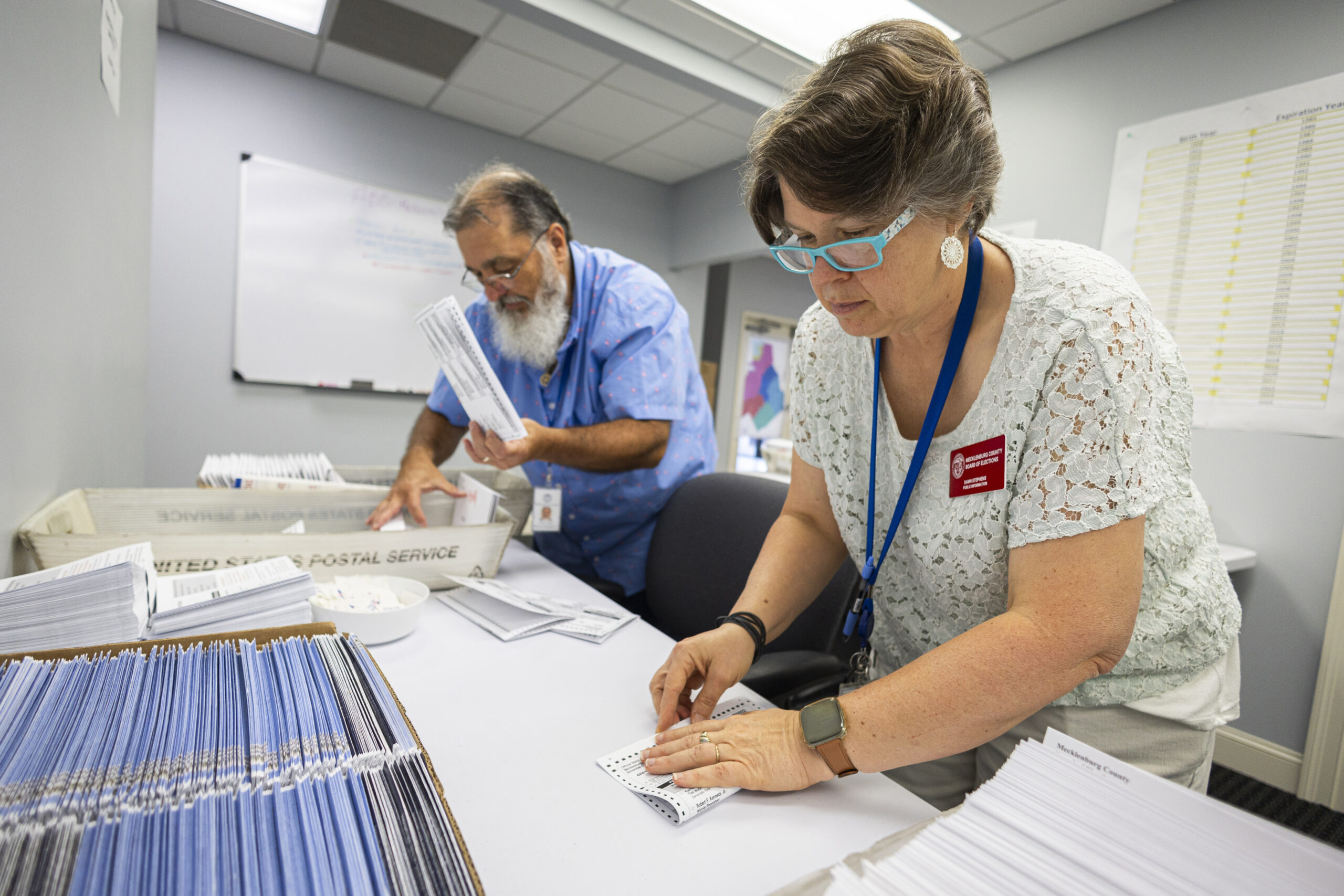
Several States Are Making Late Changes to Election Rules, Even as Voting Is Set To BeginNew or recently altered state laws are changing how Americans will vote, tally ballots, and administer and certify November’s election.
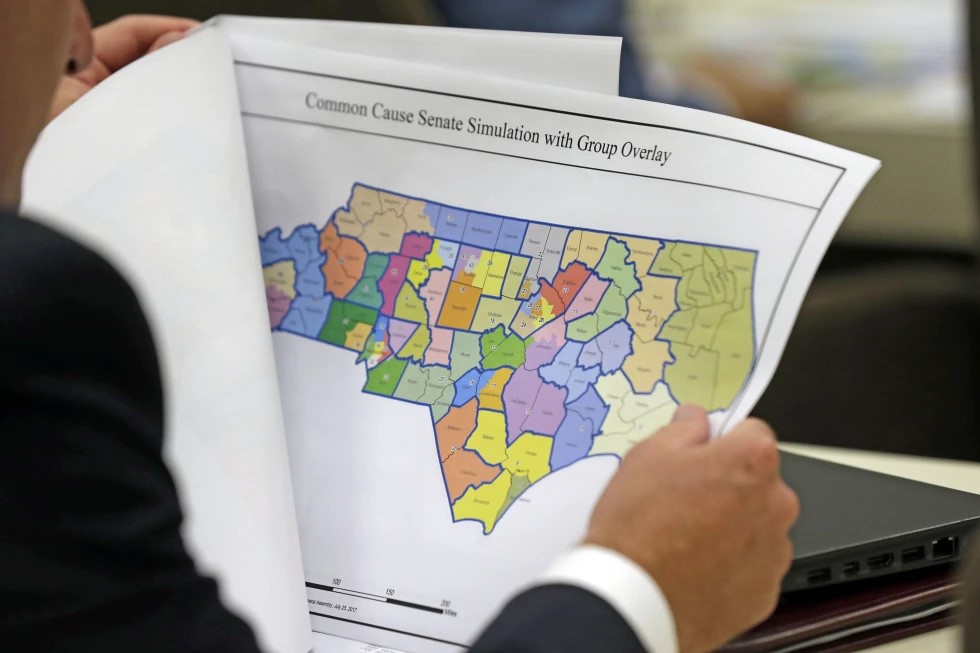
North Carolina Judges Grapple With Defining ‘Fair’ Elections in Redistricting SuitNorth Carolina judges are deciding whether a redistricting lawsuit claiming a state constitutional right to “fair" elections can go to trial.
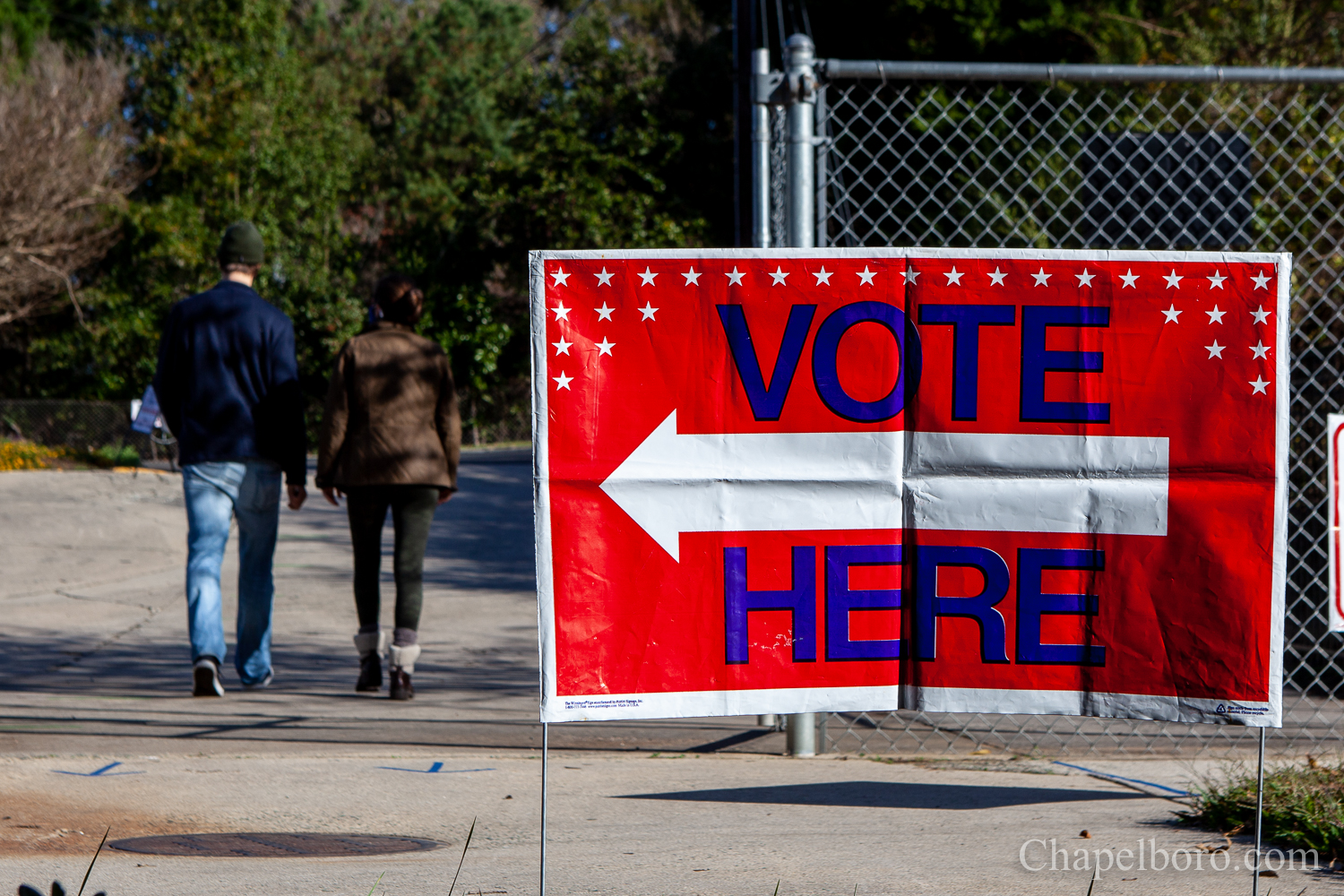
NC Supreme Court To Hear Voter ID Arguments Next MonthWritten by GARY D. ROBERTSON Oral arguments over the constitutionality of North Carolina’s photo voter identification law will be held next month, the state Supreme Court has decided in another ruling determined along partisan lines. In a 4-3 decision, the justices who are registered as Democrats agreed with attorneys for minority voters who had asked the state’s […]
![]()
Democrats, Republicans Fight to a Redistricting StalemateWritten by NICHOLAS RICCARDI After nearly a year of partisan battles, number-crunching and lawsuits, the once-a-decade congressional redistricting cycle is ending in a draw. That leaves Republicans positioned to win control of the House of Representatives even if they come up just short of winning a majority of the national vote. That frustrates Democrats, who hoped to […]
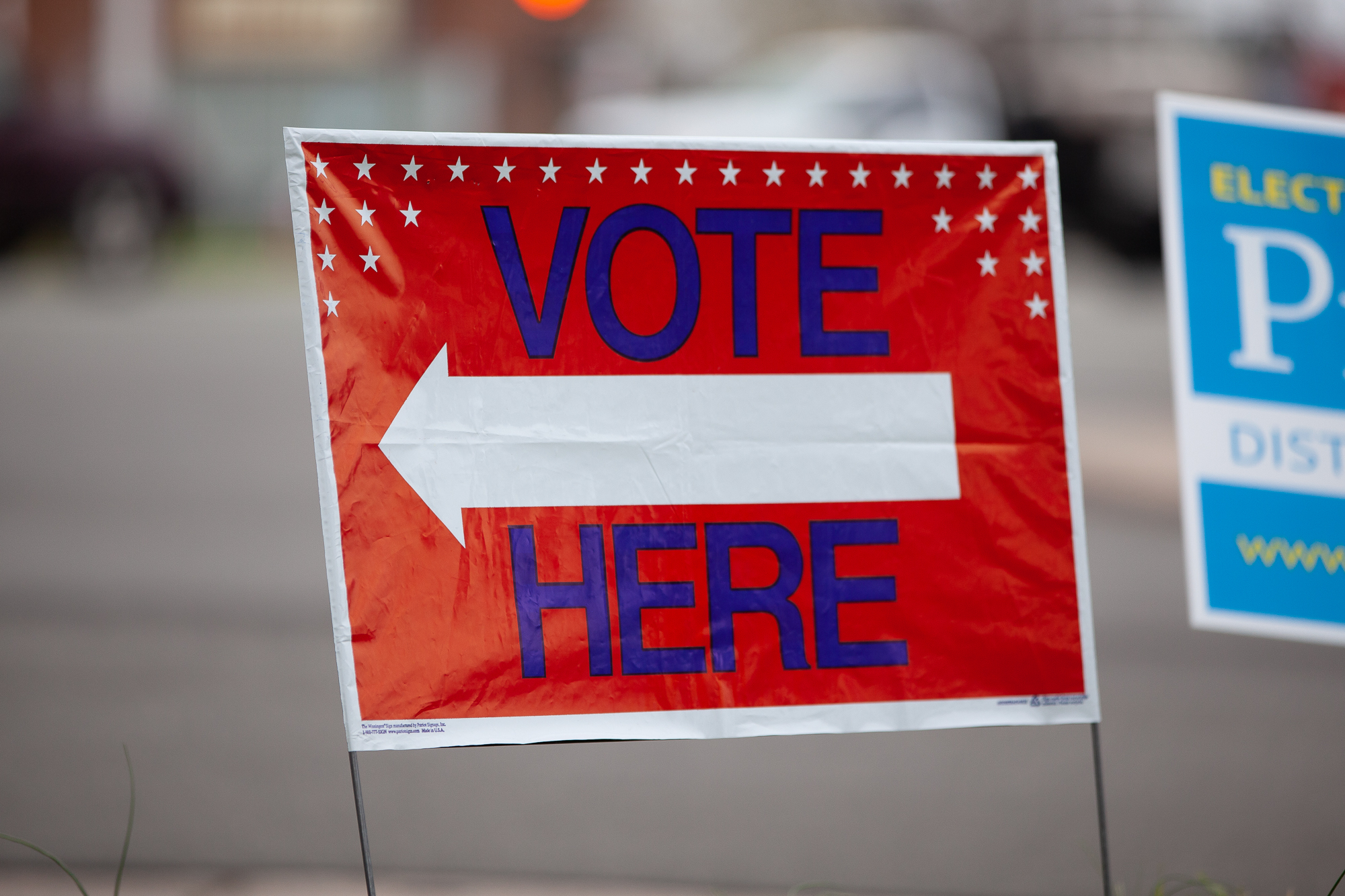
NC Judges Deny Requests to Block Elections Under New MapsWritten by GARY D. ROBERTSON North Carolina’s 2022 elections under new legislative and congressional maps can begin as scheduled next week after state judges on Friday rejected demands from lawsuit filers who claim the lines have to be blocked because they so egregiously favor Republicans. The refusal of a three-judge panel to issue preliminary injunctions against the […]
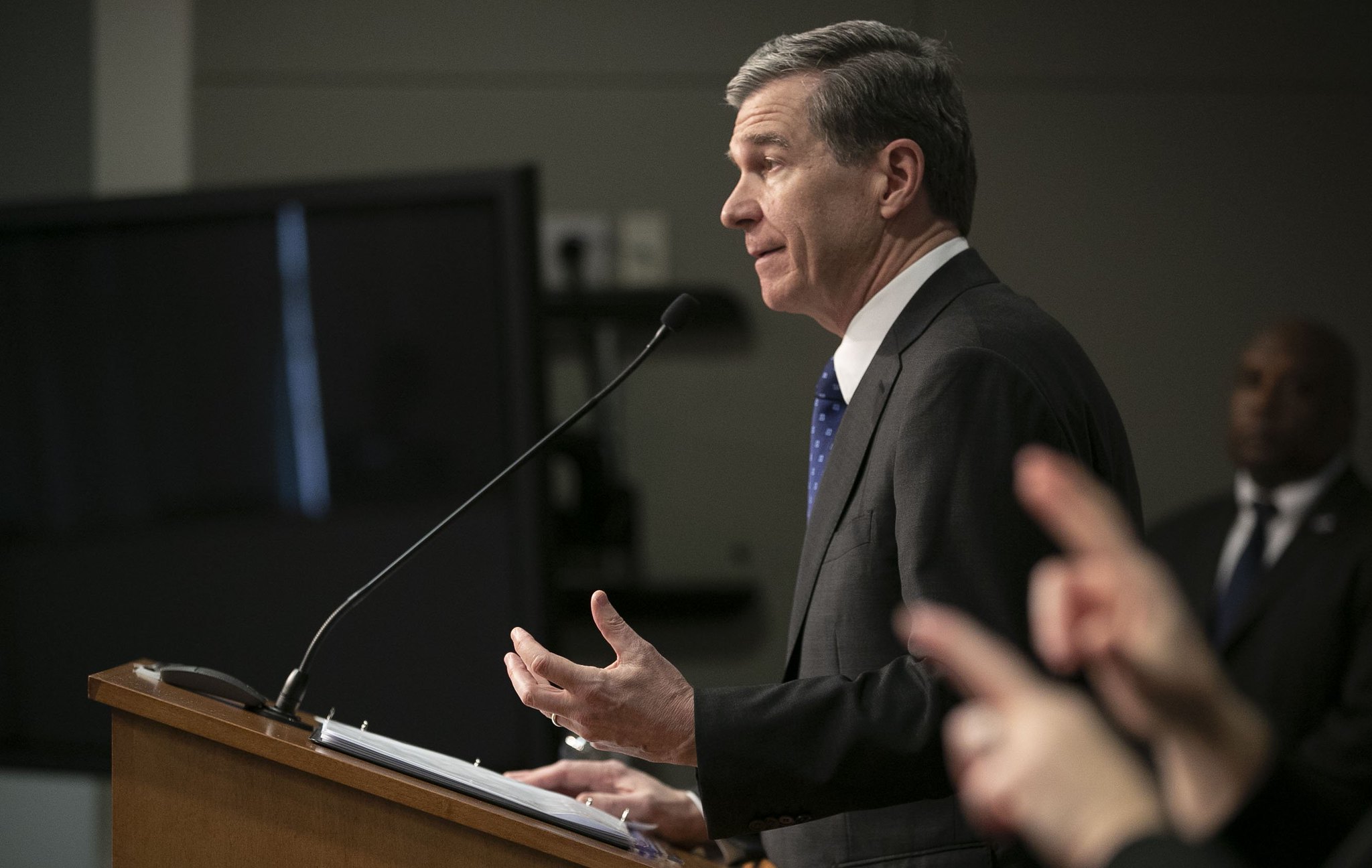
Cooper Vetoes GOP Bill That Sought To Weaken AG’s PowersWritten by GARY D. ROBERTSON North Carolina Democratic Gov. Roy Cooper vetoed a measure Monday that would have limited the powers of the person in his former position — attorney general — to enter into future legal settlements. The legislation was passed by Republicans furious with Cooper’s successor over his handling of a 2020 elections lawsuit. […]

NC Appeals Court Stops for Now Voting Restoration for FelonsWritten by GARY D. ROBERTSON A North Carolina appeals court on Friday blocked an order that had allowed tens of thousands of felony offenders who aren’t serving prison or jail time to immediately register to vote and cast ballots. The state Court of Appeals agreed to halt last week’s decision by trial judges to expand […]
![]()
North Carolina GOP Senate Candidate Pat McCrory Raises $1.2MWritten by BRYAN ANDERSON Republican North Carolina U.S. Senate candidate Pat McCrory on Thursday announced he raised more than $1.2 million in his first fundraising period since he entered the primary in April. The former Charlotte mayor who lost a pair of general election gubernatorial bids in 2008 and 2016 but won in 2012 got […]
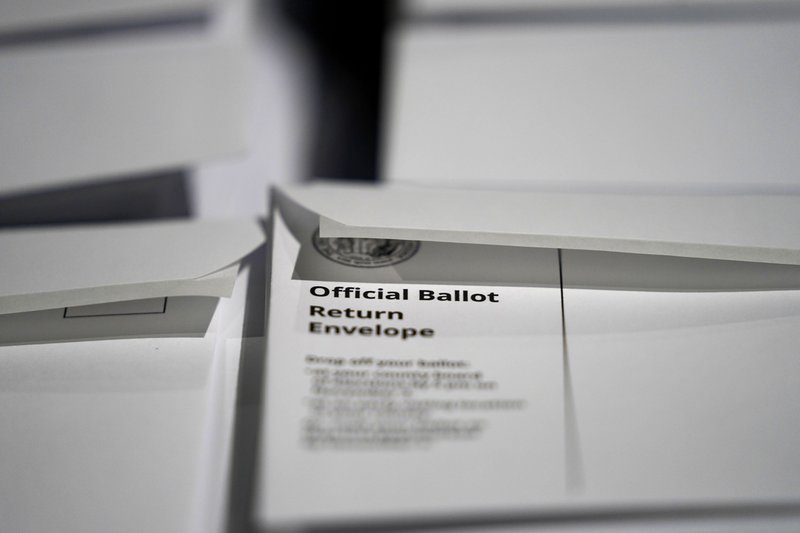
Absentee Ballot Turn-in Deadline Moved up in NC Senate BillAbsentee ballots in North Carolina would have to be received by county election officials by Election Day or the primary election date to be counted in legislation filed on Thursday by state Senate Republicans. The measure, which also would move up the usual deadline to request a mail-in ballot, comes as GOP lawmakers remain upset about […]
![]()
South Emerges as Flashpoint of Brewing Redistricting BattleWritten by NICHOLAS RICCARDI The partisan showdown over redistricting has hardly begun, but already both sides agree on one thing: It largely comes down to the South. The states from North Carolina to Texas are set to be premier battlegrounds for the once-a-decade fight over redrawing political boundaries. That’s thanks to a population boom, mostly one-party […]
›







